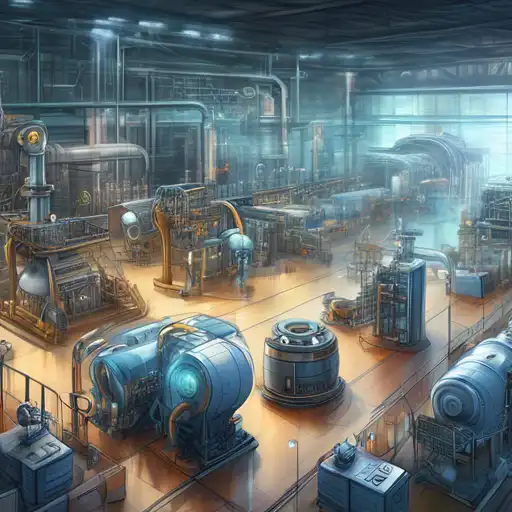Introduction to IoT in Industrial Automation
The Internet of Things (IoT) is transforming industrial automation by enabling smarter, more efficient manufacturing processes. This technological revolution is not just about connecting devices; it's about creating a seamless ecosystem where data drives decision-making, leading to unprecedented levels of productivity and efficiency.
How IoT is Changing the Game
IoT technologies are at the heart of the fourth industrial revolution, or Industry 4.0. By integrating sensors, machines, and data analytics, businesses can achieve real-time monitoring and control over their operations. This connectivity allows for predictive maintenance, reducing downtime and saving costs.
Key Benefits of IoT in Industrial Automation
- Enhanced Efficiency: Automated systems can adjust operations in real-time based on data, optimizing performance.
- Reduced Costs: Predictive maintenance and energy management lead to significant savings.
- Improved Safety: IoT devices can monitor hazardous conditions and alert workers to potential dangers.
- Scalability: IoT solutions can be scaled up or down based on business needs, offering flexibility.
Real-World Applications
From smart factories to automated supply chains, IoT is making its mark across various sectors. For instance, in manufacturing, IoT-enabled devices can track production lines in real-time, identifying bottlenecks and improving throughput. Similarly, in logistics, IoT sensors can monitor the condition of goods in transit, ensuring quality control.
Challenges and Considerations
Despite its benefits, integrating IoT into industrial automation comes with challenges. Security concerns, data privacy, and the need for skilled personnel are significant hurdles. However, with the right strategies and technologies, these challenges can be overcome.
Future Prospects
The future of industrial automation lies in the further integration of IoT technologies. As 5G networks become more widespread, the potential for even faster and more reliable connections will open up new possibilities for automation and efficiency.
For more insights into how technology is shaping industries, check out our articles on Smart Manufacturing and Industry 4.0.
Conclusion
The impact of IoT on industrial automation is profound, offering businesses the tools to enhance efficiency, reduce costs, and improve safety. As technology continues to evolve, the possibilities are limitless. Embracing IoT is not just an option but a necessity for industries looking to stay competitive in the digital age.
